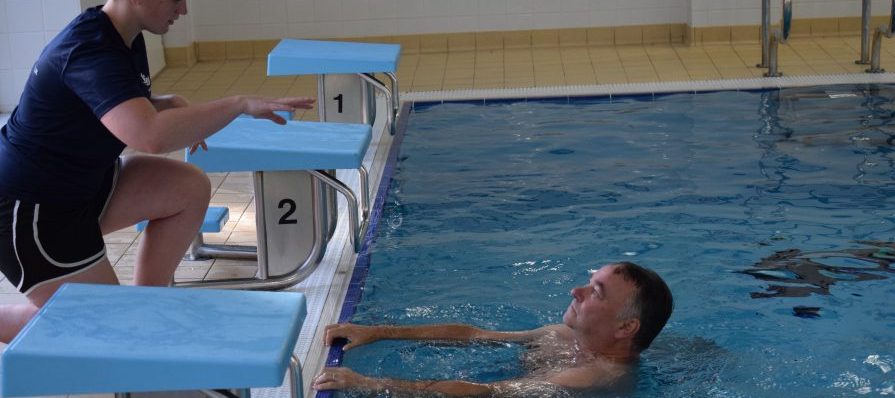
03 Jun Health benefits of swimming in adulthood
Posted at 16:48h
in Swimming Blog
Pool slides and rapids may no longer appeal… water jets, lazy rivers or wave machines might not either. However, just because adulthood has removed the fun associated with a visit to the swimming pool there are a number of other reasons to get back into the water, here are just a few!
- Swimming is a workout for your whole body. It uses every muscle, and your body has to work hard to gain propulsion through the water. Due to the resistance of water, it is harder to work out in the pool than on dry land – which means a 30-minute swim is the equivalent of 45 minutes on land!
- Swimming is a low impact sport. The water supports 90% of your body weight. This means that you can increase your heart rate without causing stress to your body. This means you can train more consistently than you can with other sports, such as running or jogging.
- Burns calories. If weight loss is your goal, swimming is a great form of exercise. An average person can burn between 400-500 calories swimming front crawl for 1 hour.
- Improves sleep. Adopting any form of exercise will make you feel tired however the combination of a good, low impact workout involving the sensory deprivation that being in the swimming pool provides can help you beat insomnia.
- Lowers risk of diseases.Swimming for half an hour, a minimum of three times a week can lower blood pressure levels. Swimming for 30 minutes can also help control your cholesterol levels by reducing dangerous types of cholesterol such as Very Low Density and Low Density Lipoproteins.
- Swimming boosts your metabolism and raises levels of good cholesterol too!
- Tones muscles.You might not notice until after your swim exactly how hard your body has been working, over time your muscle strength and tone will improve.
- Helps recovery after injury.Whether you have a short term or long term injury, swimming is one of the only exercises that will allow you to keep moving without adding more strain and stress to your injury. The added resistance, combined with the low impact creates the perfect environment for rehabilitation.
- Improves general wellbeing, lowers stress, reduces anxiety and depression. Swimming can be a mindful activity due to the repetitive movements and rhythmic breathing. It’s hard to think of other tasks while swimming and all other thoughts outside of the pool can drift away.
- Most leisure centres provide swim only memberships, with good rates per swim if you go regularly. Gym memberships are normally far more expensive.
- Accessible to many. People who suffer from obesity, arthritis, asthma etc. can all benefit from swimming. Swimming is a lifelong skill that can be enjoyed both young and old.
- Safe during pregnancy.Swimming can help your body adjust to being pregnant by helping to keep you active. It helps improve circulation, ease aches and help reduce fluid retention. The water can help you feel weightless and cool – a welcome boost in energy!
Swimming, when done right can be the best form of exercise – if you would like to learn to swim or improve your swimming visit www.adults-swimming.co.uk


